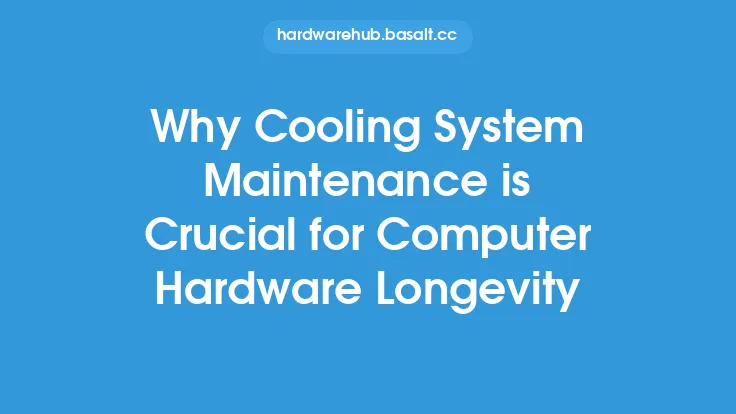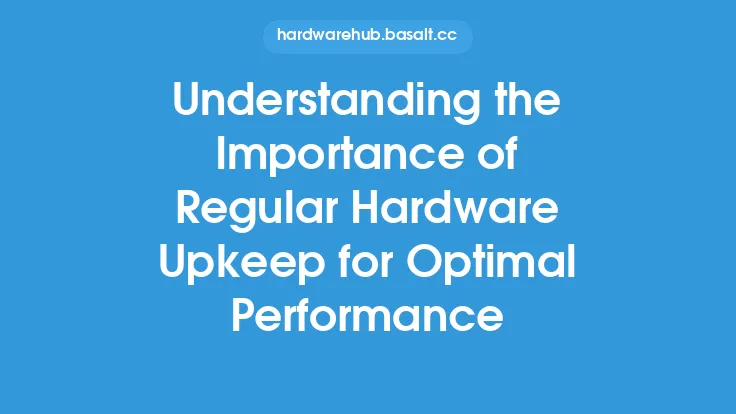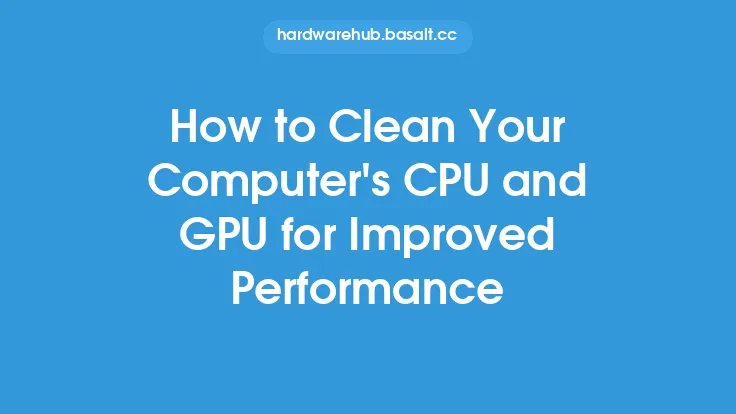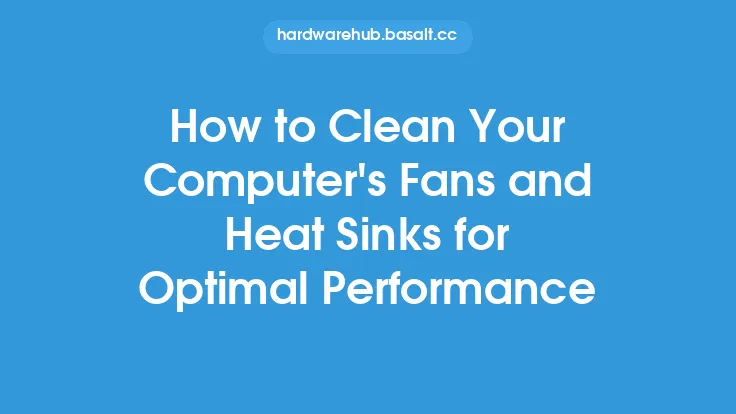Regular maintenance is essential for ensuring that your graphics processing unit (GPU) operates at its best, and one crucial aspect of this maintenance is cleaning. The GPU is a critical component of a computer, responsible for rendering images on the screen, and its performance can significantly impact the overall computing experience. Over time, dust, dirt, and other debris can accumulate on the GPU, leading to reduced performance, increased temperatures, and potentially even damage to the component. In this article, we will explore the importance of regular GPU cleaning and its impact on optimal performance.
Introduction to GPU Components
The GPU is a complex component, consisting of multiple parts that work together to render images on the screen. The main components of a GPU include the graphics processing unit itself, the memory, the cooling system, and the power delivery system. Each of these components plays a critical role in the overall performance of the GPU, and dust and debris can affect each of them in different ways. For example, dust can accumulate on the cooling system, reducing its ability to dissipate heat, while debris can accumulate on the memory, reducing its ability to transfer data quickly.
The Effects of Dust and Debris on GPU Performance
Dust and debris can have a significant impact on GPU performance, leading to reduced frame rates, increased temperatures, and potentially even system crashes. When dust accumulates on the cooling system, it can reduce the system's ability to dissipate heat, leading to increased temperatures and reduced performance. This is because the GPU is designed to operate within a specific temperature range, and excessive heat can cause it to throttle its performance or even shut down. Additionally, debris can accumulate on the memory, reducing its ability to transfer data quickly, which can also impact performance.
The Importance of Thermal Management
Thermal management is critical for maintaining optimal GPU performance. The GPU is a high-performance component that generates a significant amount of heat, and this heat must be dissipated quickly to prevent overheating. The cooling system is designed to dissipate this heat, but dust and debris can reduce its effectiveness. When the cooling system is clogged with dust, it can reduce the flow of air, leading to increased temperatures and reduced performance. Regular cleaning of the cooling system can help to ensure that it operates efficiently, which is essential for maintaining optimal GPU performance.
The Role of Airflow in GPU Cooling
Airflow plays a critical role in GPU cooling, and dust and debris can reduce the flow of air, leading to increased temperatures and reduced performance. The cooling system is designed to draw in cool air, which is then used to dissipate heat from the GPU. However, when dust and debris accumulate on the cooling system, they can reduce the flow of air, leading to increased temperatures and reduced performance. Regular cleaning of the cooling system can help to ensure that airflow is not restricted, which is essential for maintaining optimal GPU performance.
Best Practices for GPU Cleaning
While cleaning the GPU is essential for maintaining optimal performance, it must be done carefully to avoid damaging the component. The GPU is a sensitive component, and rough handling or the use of harsh chemicals can damage it. When cleaning the GPU, it is essential to use compressed air or a soft-bristled brush to gently remove dust and debris. Additionally, the cooling system should be cleaned regularly to ensure that it operates efficiently. It is also essential to handle the GPU by the edges, avoiding touching the sensitive components, and to avoid using harsh chemicals or rough cloths that can damage the component.
The Benefits of Regular GPU Cleaning
Regular GPU cleaning can have a significant impact on performance, leading to improved frame rates, reduced temperatures, and increased longevity. When the GPU is clean, it can operate at its best, providing a better computing experience. Additionally, regular cleaning can help to prevent damage to the component, which can be expensive to repair or replace. Furthermore, regular cleaning can help to reduce the risk of system crashes and other issues that can be caused by overheating or debris accumulation.
Conclusion
In conclusion, regular GPU cleaning is crucial for maintaining optimal performance. Dust and debris can accumulate on the GPU, leading to reduced performance, increased temperatures, and potentially even damage to the component. By understanding the importance of thermal management, airflow, and best practices for GPU cleaning, users can help to ensure that their GPU operates at its best. Regular cleaning can have a significant impact on performance, leading to improved frame rates, reduced temperatures, and increased longevity. As such, it is essential to make GPU cleaning a regular part of maintenance routine to ensure optimal performance and longevity.





